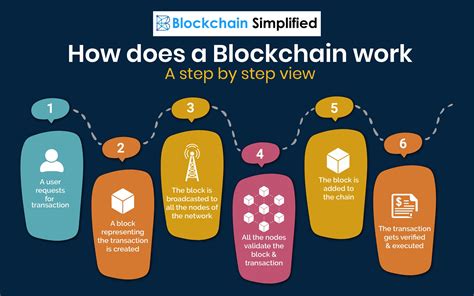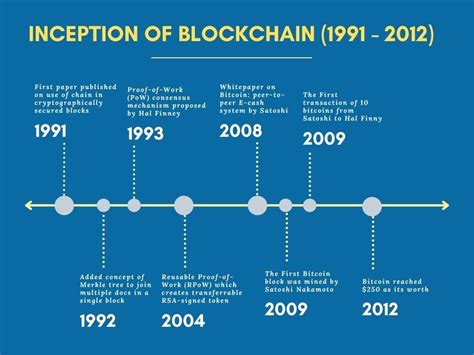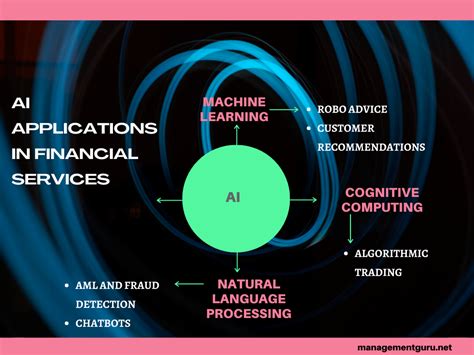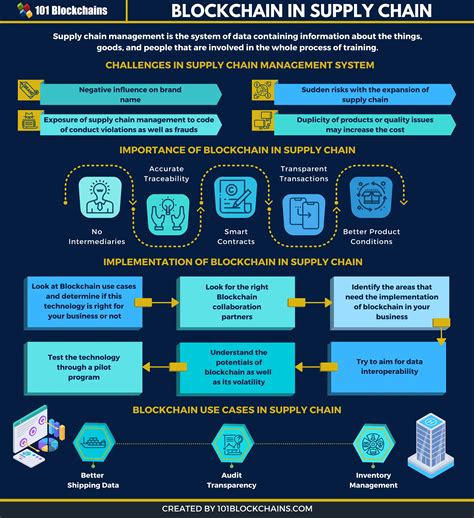Breaking News


Popular News


Explore the evolution, key features, and applications of blockchain technology in finance and supply chain management. Discover future trends in this transformative technology.In recent years, blockchain technology has garnered significant attention for its potential to revolutionize various industries. From finance to supply chain management, the applications of blockchain are vast and varied, making it a topic of interest for businesses and consumers alike. This blog post will explore the fundamental concepts of blockchain technology, its evolution over the years, and its key features that set it apart from traditional systems. We will also delve into specific applications of blockchain in the finance industry and supply chain management, showcasing the real-world impact of this innovative technology. Additionally, we will discuss the future trends in blockchain technology, shedding light on the potential advancements and developments that could shape its trajectory in the years to come. Whether you’re a novice curious about blockchain or a seasoned professional seeking insights into its applications, this post aims to provide a comprehensive understanding of blockchain technology and its potential impact across industries.
Contents

Blockchain technology is a decentralized digital ledger that records transactions across multiple computers. The data is stored in blocks, which are linked together in a chain. Each block contains a cryptographic hash of the previous block, timestamp, and transaction data. This makes it highly secure and resistant to tampering.
One of the key features of blockchain technology is its transparency. All the participants in the network have access to the same information, and any changes made to the data are visible to everyone. This ensures trust and accountability in the system.
Another important aspect of blockchain technology is its immutability. Once a block is added to the chain, it cannot be altered or deleted. This means that the data stored in the blockchain is permanent and cannot be changed retroactively.
Blockchain technology has a wide range of applications, from financial services to supply chain management. It can be used for secure and transparent transactions, record-keeping, and tracking of goods and assets. With its potential to revolutionize various industries, the future of blockchain technology looks bright.

The evolution of blockchain technology has been a fascinating journey, starting with the creation of the first blockchain by an unknown person or group of people using the name Satoshi Nakamoto in 2008. This marked the beginning of a revolutionary technology that has since transformed various industries.
Initially, blockchain was primarily associated with cryptocurrencies, such as Bitcoin. However, as the technology matured, its potential for applications beyond digital currencies became increasingly evident.
One of the key milestones in the evolution of blockchain technology is the development of Ethereum in 2015. Ethereum introduced the concept of smart contracts, which are self-executing contracts with the terms of the agreement directly written into code. This expanded the possibilities for blockchain beyond simple financial transactions.
As blockchain continued to garner attention, companies and industries started exploring its potential for improving transparency, security, and efficiency in a wide range of processes. This led to the emergence of enterprise blockchain solutions, with major technology firms and financial institutions investing in research and development to harness the benefits of the technology.

Blockchain technology is characterized by several key features that make it revolutionary in the digital world. One of the most prominent features is decentralization. Unlike traditional centralized systems, blockchain operates on a network of multiple nodes, each containing a copy of the entire ledger. This decentralized nature ensures that no single entity has control over the data, making it more secure and resistant to tampering or fraud.
Another essential feature of blockchain is transparency. All transactions recorded on the blockchain are visible to every participant in the network. This transparency ensures that all parties can verify the integrity of the data and trust the information contained within the blockchain. Additionally, the use of cryptographic techniques ensures that data cannot be altered without detection.
The concept of immutability is also fundamental to blockchain technology. Once a block of data is added to the blockchain, it becomes virtually impossible to alter or delete. This feature is achieved through the use of cryptographic hashes and consensus mechanisms, ensuring that the integrity of the data is maintained over time.
Lastly, security is a key feature of blockchain technology. The use of advanced cryptographic techniques and decentralized consensus mechanisms makes blockchain inherently secure against unauthorized access and fraudulent activities. The combination of these features makes blockchain an ideal solution for industries and applications that require trust, transparency, and security.

Blockchain technology has begun to revolutionize the finance industry in various ways, with its ability to provide secure and transparent transactions. One of the key applications of blockchain in finance is in the realm of cross-border payments. Traditional payment systems can often be slow and expensive, especially for international transactions. However, blockchain technology can streamline this process by enabling instant and low-cost cross-border payments.
Another significant application of blockchain in finance is the issuance and trading of digital assets. This involves the use of blockchain technology to create and manage digital tokens representing various assets, such as stocks, bonds, or commodities. These digital assets can then be easily traded on blockchain-based platforms, providing increased efficiency and liquidity in the financial markets.
Moreover, blockchain technology is also being utilized in improving the transparency and security of financial data. By utilizing blockchain for record-keeping and auditing purposes, financial institutions can ensure the integrity and authenticity of their data, while also reducing the risk of fraud and error. This can have a significant impact on the overall trust and reliability of the financial industry.
Overall, the applications of blockchain in the finance industry are numerous and continue to expand as the technology evolves. From cross-border payments to digital asset issuance and data security, blockchain technology is reshaping the way financial transactions are conducted and managed.

Blockchain technology has revolutionized several industries, and one of the most significant areas of impact is the supply chain management. The use of blockchain in supply chain management has brought about transparency, security, and efficiency to the process.
One of the key features of blockchain that makes it ideal for supply chain management is its ability to create an immutable and transparent ledger of transactions. These transactions are recorded in blocks and linked together in a chain, making it virtually impossible to alter or tamper with any record. This provides a high level of trust and security in the supply chain process.
Additionally, blockchain technology enables the tracking of goods from their origin to their final destination. This traceability is crucial in ensuring the authenticity and quality of products, as well as in addressing any potential issues such as counterfeit products or supply chain disruptions.
Furthermore, the use of smart contracts in blockchain allows for automated and self-executing agreements between parties involved in the supply chain. This streamlines the process, reduces the need for intermediaries, and minimizes the risk of human error or fraud.

Blockchain technology continues to evolve rapidly, and the future looks promising with several exciting trends on the horizon. One of the key future trends in blockchain is the widespread adoption of interoperability protocols, which will allow different blockchain networks to communicate and share data seamlessly. This will pave the way for larger-scale blockchain applications and more efficient cross-platform transactions.
Another important trend is the rise of decentralized finance (DeFi) on the blockchain, which has the potential to revolutionize traditional finance systems. DeFi applications allow for peer-to-peer lending, borrowing, and trading without the need for traditional financial intermediaries. This trend is expected to grow as more people recognize the benefits of decentralized financial services.
Furthermore, the integration of artificial intelligence and machine learning with blockchain technology is poised to transform the industry. By combining AI and blockchain, companies can streamline data analysis, enhance security, and improve decision-making processes. This convergence of technologies has the potential to revolutionize a wide range of industries, from healthcare to supply chain management.
In addition, the future of blockchain technology will likely see the proliferation of tokenization across various assets, including real estate, art, and intellectual property. Tokenization involves representing real-world assets as digital tokens on a blockchain, making them more accessible and tradable. This trend has the potential to unlock new investment opportunities and democratize access to assets that were previously illiquid or out of reach for many investors.

What is blockchain technology?
Blockchain technology is a decentralized digital ledger that records transactions across many computers in such a way that the registered transactions cannot be altered retroactively.
How does blockchain ensure security?
Blockchain ensures security through its decentralized nature, cryptographic techniques, and consensus algorithms, making it extremely difficult for any single entity to manipulate the system.
What are some common applications of blockchain technology?
Common applications of blockchain technology include cryptocurrency, supply chain management, healthcare data management, voting systems, and smart contracts.
What are the benefits of using blockchain technology?
Some benefits of using blockchain technology include enhanced security, reduced costs, increased transparency, improved traceability, and faster transactions.
What are the potential challenges of implementing blockchain technology?
Potential challenges of implementing blockchain technology include scalability issues, regulatory concerns, interoperability with existing systems, and energy consumption in the case of some consensus algorithms.
What role does cryptography play in blockchain technology?
Cryptography plays a crucial role in blockchain technology by ensuring the privacy and security of transactions and data stored on the blockchain.
Is blockchain technology suitable for all types of applications?
While blockchain technology has many potential applications, it may not be suitable for all use cases. Factors such as scalability, data privacy, and regulatory compliance need to be considered when determining its suitability for a specific application.